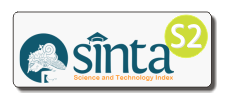Stock Returns and Liquidity Changes Around the Screening Announcement: An Empirical Study in Indonesia
DOI:
https://doi.org/10.14421/grieb.2015.032-02Keywords:
Shari’ah Screening, Stock Returns, Liquidity, ISSIAbstract
This paper aims to identify and analyze the volatility of stock returns and the changes of liquidity around the announcement of Shari’ah stock screening published by Otoritas Jasa Keuangan (OJK) and Dewan Syariah Nasional (DSN-MUI). The announcement is consist of stocks that become the constituent of ISSI (Indonesia Shari’ah Stock Index) and the stocks out from ISSI in each period. The number of data are 341 emitens, divided into two categories. The first category was 196 stocks that out from the composition of ISSI, and the second was shari’ah stock from 145 emitens which categorized as part of ISSI from 2011 to 2016. The statistical method (t-test) is used to analyze the change of stock returns and the change of liquidity in 14 days around the announcement (6 days pre- and post announcement). The result shows that Shari’ah compliant stocks over 6 years around the announcement have no difference in return and have negative sign for both the Shari’ah stocks and the stocks out from ISS. It may caused by the intention of Islamic investor which invest their capital based on the compliance of Shari’ah, so the returns do not become the most important one. Interestingly, on the other hand, the liquidity change of stocks which out of ISSI has negative significant difference on the days after the announcement of screening. It indicates that the non-compliant stocks have negative in change of liquidity or have significant liquidity declining after the announcement. Also, in fact Islamic invetors are more concern in the list of stocks that out from ISSI and the stock returns become less important to them than the compliance of investment. Thess findings confirm the issue that the screening is not effecting the expected return of investors. Besides, this study tells that the screening is perceived as important information by the investors in making decisions. Thus, the next studies are needed to investigate the effect of long-term investment on shari’a stock and the factors that influence the shari’a stock return during the period of announcement.Downloads
 Abstract viewed: 535 times
|
Abstract viewed: 535 times
|
 PDF downloaded = 681 times
PDF downloaded = 681 times
References
Abdullah, F., Hassan, T., and Mohamad, S. (2007). Investigation of Performance of Malaysian Islamic Unit Trust Funds. Managerial Finance (33): 142-153.
Allen, F. and Faulhauber, G. (1989). Signaling by Underpricing in the IPO Market. Journal of Financial Economics (23): 303-323.
Atmadja, A. S. dan Siaputra, L. (2006). Pengaruh Pengumuman Dividen terhadap Perubahan Harga Saham Sebelum dan Sesudah ex-dividend date di Bursa Efek Jakarta (BEJ). Jurnal Akuntansi dan Keuangan (8): 71-77.
Bahlous, M. and Yusof, R. M. (2014). International Diversification Among Islamic Investments: Is There Any Benefit. Managerial Finance (40): 613-633.
Baron, D. P. and Holmstrom, B. (1980). The Investment Banking Contract for New Issues Under Asymmetric Information: Delegation And the Incentive Problem. The Journal of Finance (35): 1115-1138.
Berkman, H., and Eleswarapu, V. R. (1998). Short-term Traders and Liquidity: A Test Using Bombay Stock Exchange Data. Journal of Financial Economics 47: 39-355.
Bodie,Z., Kane, A., and Marcus, A.J. (2014). Investments. McGraw-Hill Education, New York.
Brigham, E. F. and Ehrhardt, M. C. (2011). Financial Management Theory and Practice. South-Western Cengage Learning, Mason, USA.
Carter, R. and Manaster, S. (1990). Initial Public Offering and the Underwriter Reputation. The Journal of Finance (45): 1045-1067.
Hanafi, S. M. (2011). Perbandingan Kriteria Syari’ah pada Indeks Saham Syari’ah Indonesia, Malaysia, dan Dow Jones. Jurnal Ilmu Syari’ah dan Hukum (45): 1404-1430.
Hassan, A., Antoniu, A., and Paudyal, D. K. (2005). Impact of Ethical Screening on Investment Performance: The Case of the Dow Jones and Islamic Index. Islamic Economic Studies (12): 67-97.
Hussein, K. A. (2005). Islamic Investment: Evidence from Dow Jones and FTSE Indexes. Paper presented at the 6th International Conference on Islamic Banking and Finance, Jakarta, November 21-14.
Rees, L. and Thomas, W. (2010). The Stock Price Effects of Changes in Dispersion of Investor Beliefs During Earnings Announcements. Rev. Account Stud (15): 1-31.
Rock, K. (1986). Why New Issues are Underprice. Journal of Finance Economics (15): 187-212.
Sumar’in. (2015). Pengujian indikasi Spekulasi Perdagangan Saham di Bursa Efek Indonesia. Doctoral Thesis. UIN Sunan Kalijaga, Yogyakarta.
Triaryati, N. dan Husnan, S. (2004). Perbandingan Abnormal Return Emisi Saham Perdana Perusahaan Keuangan dan Non-Keuangan di Pasar Modal Indonesia: Pengujian terhadap Hipotesis Informasi Asimetri. Sosiosains (17): 423-441.
Welch, L. (1989). Seasoned Offering, Imitation Cost and The Underpricing of Initial Public Offering. Journal of Finance (44): 817-838.
Downloads
Published
Issue
Section
License
Global Review of Islamic Economics and Business is licensed under a
Creative Commons Attribution-ShareAlike 4.0 International License



















